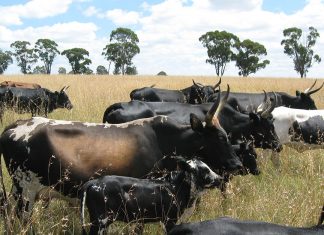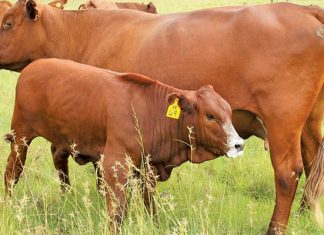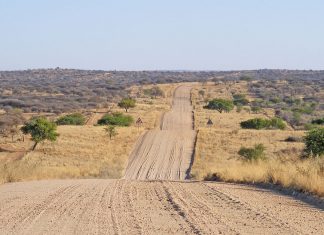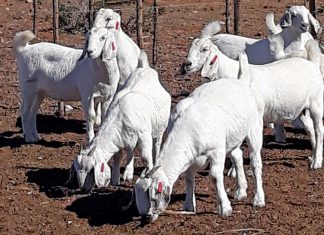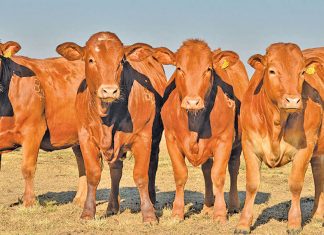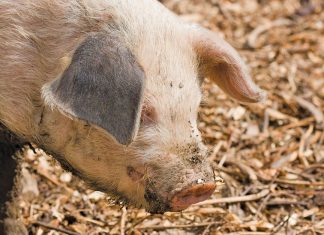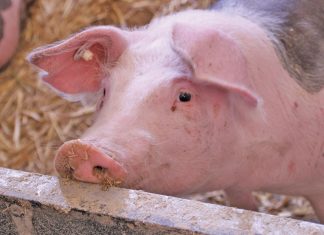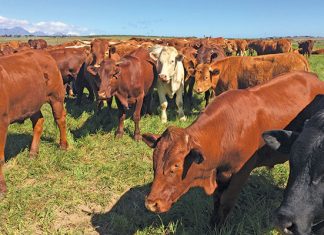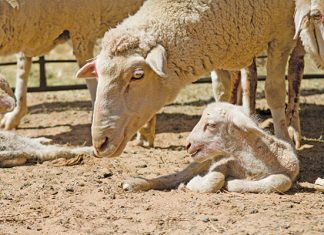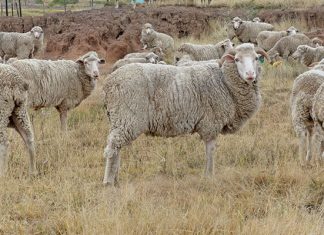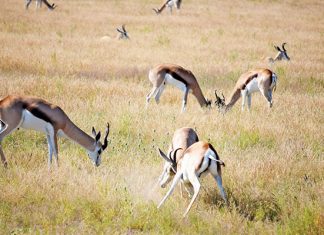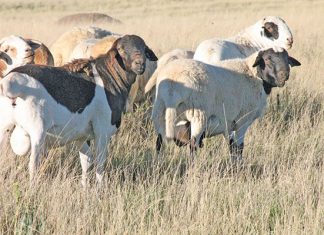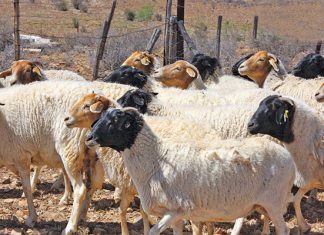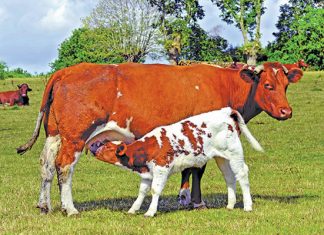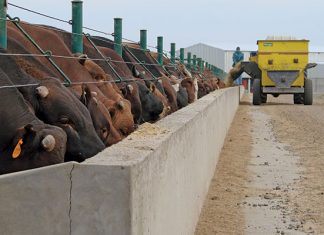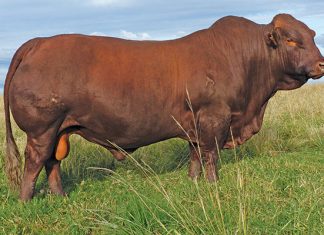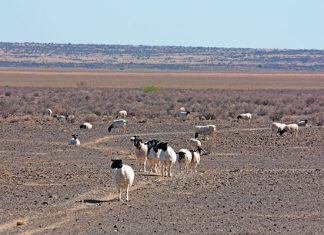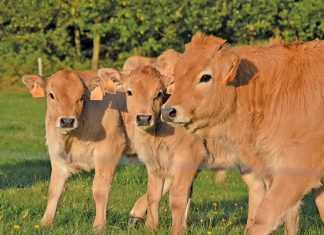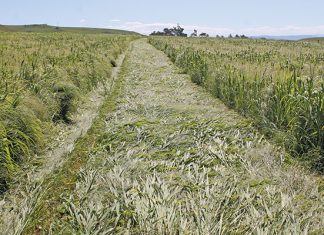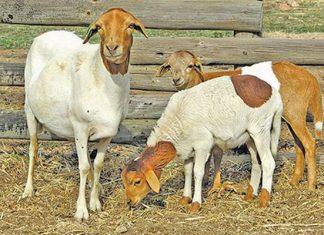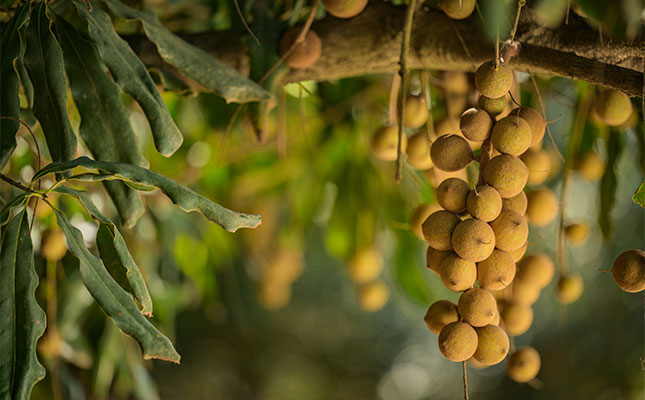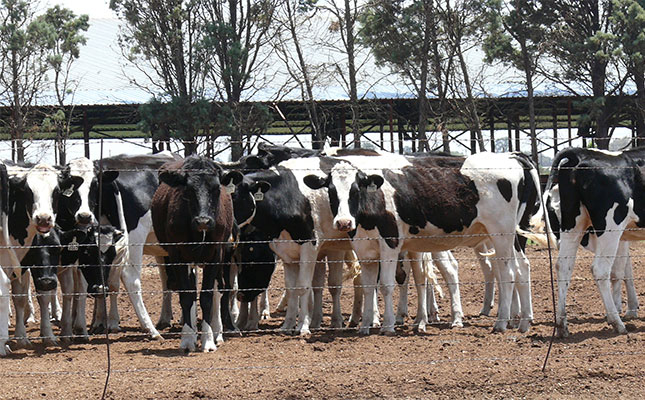Dehorning your beef cattle can help boost profits
Removing the horns from your cattle holds a number of advantages. Most importantly, it will prevent the problem of bruised meat.
Tuberculosis in cattle
Tuberculosis is an important zoonotic disease that spreads slowly in animal populations.
How to reverse soil degradation on your farm
Livestock producers, particularly in arid climates, are struggling to remain profitable. Soil degradation and declining stocking rates have been identified as some of the main reasons for this decline. Colin Nott, a regenerative agricultural consultant from Namibia, spoke to Annelie Coleman.
Producing cashmere
Cashmere is one of the finest fibres in the world and is considerably warmer than wool. Products made from this fibre are in great demand, especially in Western countries.
Boost productivity with heifers
The replacement heifer is the foundation of a productive cow herd. Its selection and development can greatly affect the profitability of the farm through its genetics, future performance and longevity.
Thorn tree leaves: a nutritious grain substitute in pig feed
Smallholder pig production in Southern Africa is constrained by feed shortages and the demand for grains to feed the ever-growing human population. This makes it important to identify alternative feedstuffs for pigs.
Tackling a widespread pig zoonosis
Diseases that spread from animals to humans are a serious health risk. One such disease, associated with pigs, is a particular problem in rural South Africa, says Dr Caryn Shacklock of Afrivet.
Regenerative farming for livestock farmers
Faced with increasing financial and ecological pressure, livestock farmers have no other option but to become more sustainable and resilient. Fortunately, explains independent agricultural consultant Dr Louis du Pisani, the solution can be found in well-managed veld, which also contributes directly to the health of the earth.
The importance of breeding seasons and good male genetics
Two factors are crucial to successful livestock production: choosing the right rams or bulls, and planning breeding so that offspring are born at the optimal time of the year.
Livestock marketing tips
Informal sales may be a convenient way to improve cash flow in the short term, but they make it difficult to budget, and you won’t be able to take advantage of high prices on the market.
Game handling basics
Providing feed and water for game animals can be challenging, as some methods may cause injury. Here are some helpful tips for setting up feed and water troughs, as well as building a crush.
The Meatmaster: locally developed for low input costs
This composite breed, with its predominantly Damara genetics, is hardy and highly functional.
All about the Namaqua Afrikaner
This long-legged breed has a smooth, white hair coat with a black or red head.
Breeding seasons in summer rainfall areas
The following guidelines and recommendations for cattle breeding seasons are applicable to a summer rainfall region and should be adapted accordingly for a winter rainfall region.
Stress in cattle
As part of an animal’s stress response, its body releases cortisol, a hormone that provides energy to help the animal escape the stressor. If the stress persists, however, the animal’s health will suffer.
Are top-priced genetics really worth it?
Logic seems to dictate that some livestock producers must suffer buyer’s remorse after purchasing an animal for an eye-watering price. Glenneis Kriel asked a few farmers whether their record-breaking acquisitions have paid off, and found the answer to be unanimous.
Beat the heat! How to care for livestock in extreme weather
South Africa’s increasingly common heatwave conditions pose a major threat to the country’s farmed cattle, sheep and goats, which often feed and live outdoors. Lloyd Phillips spoke to a number of experts in the field about the negative effects of extremely high temperatures on livestock, and practical methods a farmer can use to mitigate these.
The importance of having a breeding season
Optimal reproductive performance is crucial to the success of a beef cattle enterprise. A defined breeding season can help to achieve this.
Proper planning: the key ingredient for quality stored fodder
To maximise kilograms of meat or wool produced per hectare, it is crucial to maintain a farm’s carrying capacity during winter. This invariably means producing high-quality stored fodder, and making sure there is enough of it. Deal Miles, a beef, mutton and wool farmer in the Cedarville area of the Eastern Cape, outlined his methods of achieving this to Lloyd Phillips.
The basics of the Bapedi breed
These fat-tailed sheep, which are smaller than average, are kept for meat. They appear in various combinations of white, brown, red and black.
- ADVERTISEMENT -
- ADVERTISEMENT -
MUST READS
- ADVERTISEMENT -

